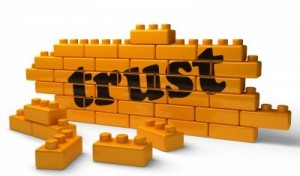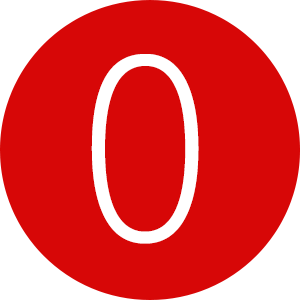It’s been said that trust is the new workplace currency. When it comes to the cultivation of genuine relationships, authenticity is the fertilizer and trust is the water. If either component is missing the relationship will suffer, but we would probably all agree that the absence of trust will kill a relationship much faster. In their book, The Trusted Advisor, David H. Maister and Charles H. Green share what they call the Trust Equation. While they speak to trust from the perspective of advisory professions (consulting, accounting, public relations, etc.) there is value in using the equation to evaluate all kinds of relationships. I often use it when helping clients uncover the root cause of professional relationships that aren’t working.
If we think in terms of benefits, there is significant value in building and maintaining trusting relationships. That value increases exponentially when a critical working relationship derails. When there is trust it is more likely that your colleagues will:
- Be more inclined to accept and act on your recommendations
- Treat you in the manner you wish to be treated
- Give you the benefit of the doubt
- Forgive a mistake
- Involve you early on in a project, rather than later in the process
- Caution you of dangers you might want to avoid
- Support and advocate for you in your absence
Let’s also consider that collaboration is a cornerstone of innovation, which is crucial for the competitive nature of any business. It is even more important if the goal is to become a market leader. When relationships suffer, so does innovation.
When faced with a challenging relationship, the natural tendency is to think about what “the other person” should do differently; but self-awareness is another aspect of successful relationships. The Trust Equation creates an opportunity to reflect on how you might be contributing to the quality of the relationship as well.
The Trust Equation has one variable in the denominator and three in the numerator. When calculating your TE score, it is important to note that increasing the value of the factors in the numerator increases the value of trust. It is also important to know that increasing the value of the denominator (Self-orientation) actually decreases the value of trust. Self-orientation is also the most important variable in the Trust Equation. An individual with low self-orientation is open, honest, and transparent in their communication. It is this level of communication that fosters trust and strengthens relationships.
Trust Equation (TE) = Credibility + Reliability + Intimacy/Self-Orientation
As you read the reminder of this article consider your most challenging professional relationship. Assess yourself in each variable of the equation to determine if you are somehow negatively impacting the health of the relationship. If you discover an area that can be strengthened, use your awareness to initiate a conversation (yep, there’s that darn vulnerability again!) about moving the relationship forward in a more positive way.
Let’s take a closer look at the components of the Trust Equation.
Credibility relates to the words you speak — your content expertise and the presentation of your knowledge. It is your ability to effectively translate your knowledge and expertise to others that determines the extent to which you are seen as credible. In the early days of my speaking career I shared lots of concepts and theories applied to hypothetical situations. It wasn’t until I combined my research with my teachable point of view – my personal stories of failure and resilience that I was seen as credible by my audiences. Coaching clients have shared that knowing my back story, combined with my experience and academic credentials make me more credible and provide them with clarity regarding my approach to their development. How would you rate your credibility on a scale from 1 (low) – 10 (high)?
Reliability is all about your actions. Can people (your boss, direct reports, peers/colleagues, clients/customers) depend on you to follow-through on your commitments? Do you “walk the talk” or are you simply all talk? Are you seen as dependable? Do people know what they can expect from you, consistently? A colleague and I were discussing a particular leader over dinner one evening and we agreed that he is extremely credible in the sense that his subject matter expertise effectively translates into results. However, he is not reliable. He often makes commitments at the individual level that are not kept. He is known to “blow off” meetings, to be nonresponsive to communications, and to respond inconsistently to requests for information. As a result his reputation has suffered. This is where I like to make the distinction between performance and behavior (actions). While you may be able to say that you get the job done, consider the way in which your actions impact how you get it done. Are you consistent in the quality of your deliverables? Are target dates always met? Are the experiences that people have with you consistently positive? How would you rate your reliability on a scale from 1 (low) – 10 (high)?
Intimacy is about emotion and can be viewed from two perspectives. The first is consideration of the extent to which you are comfortable entrusting someone with your confidences and delicate information. Then of course, there is the extent to which others feel safe sharing information with you. Additionally, you will want to consider whether people feel safe with you in general. Can they be sure that you won’t embarrass them, or “throw them under the bus” when under pressure? Intimacy involves “real issues” and “straight talk.” Your ability to open up, as well as your ability to encourage others to be open will influence your intimacy score. One bad experience with you will impact the extent to which you are able to achieve intimacy in a professional interaction. How would you rate your level of intimacy (in that challenging relationship) on a scale of 1 (low) – 10 (high)?
When I think of Self-orientation this is the question that comes to mind, “what is your agenda?” It relates to your motives. Are you more focused on winning, being right, or promoting yourself at any cost? Do you take credit for the work of others?” This component of the trust equation reveals the extent to which you are focused on yourself or on the other person in your interactions. Remember the higher your Self-orientation score, the lower the value of trust. How would you rate your Self-orientation on a scale of 1 (low) – 10 (high)?
As you reflect on and calculate your trust equation score be honest with yourself about how you “show up.” While it does take two to get any relationship right, someone has to take the first step. As I look back over this article, I’m not sure that the actual Trust Equation score is as important as simply taking the time to consider how you “show up” in each variable of the equation. The examination usually does reveal an opportunity to do something different.






